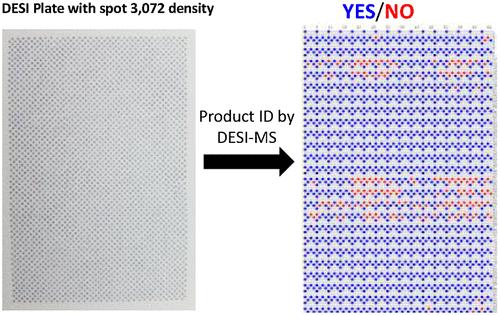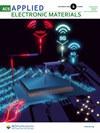High-Throughput Experimentation and Continuous Flow Evaluation of Nucleophilic Aromatic Substitution Reactions
IF 4.3
3区 材料科学
Q1 ENGINEERING, ELECTRICAL & ELECTRONIC
引用次数: 14
Abstract
Nucleophilic aromatic substitution (SNAr) reactions were optimized using high-throughput experimentation techniques for execution under flow conditions. A total of 3072 unique reactions were evaluated with an analysis time of ∼3.5 s per reaction using a system that combines a liquid handling robot for reaction mixture preparation with desorption electrospray ionization (DESI) mass spectrometry (MS) for analysis. The reactions were performed in bulk microtiter arrays with and without incubation. In-house developed software was used to process the data and generate heat maps of the results. This information was then used to select the most promising conditions for continuous synthesis under microfluidic reactor conditions. Our results show that this HTE approach provides robust guidance for narrowing the range of conditions needed for optimization of SNAr reactions.

亲核芳烃取代反应的高通量实验和连续流评价
采用高通量实验技术对亲核芳香取代反应进行了优化。利用液体处理机器人制备反应混合物和解吸电喷雾电离(DESI)质谱(MS)分析相结合的系统,共对3072个独特反应进行了评估,每个反应的分析时间为~3.5 s。在有和没有孵育的情况下,反应在大量微量滴度阵列中进行。内部开发的软件用于处理数据并生成结果的热图。然后利用这些信息选择最有希望在微流控反应器条件下进行连续合成的条件。我们的结果表明,这种HTE方法为缩小SNAr反应优化所需的条件范围提供了强有力的指导。
本文章由计算机程序翻译,如有差异,请以英文原文为准。
求助全文
约1分钟内获得全文
求助全文

 求助内容:
求助内容: 应助结果提醒方式:
应助结果提醒方式:


